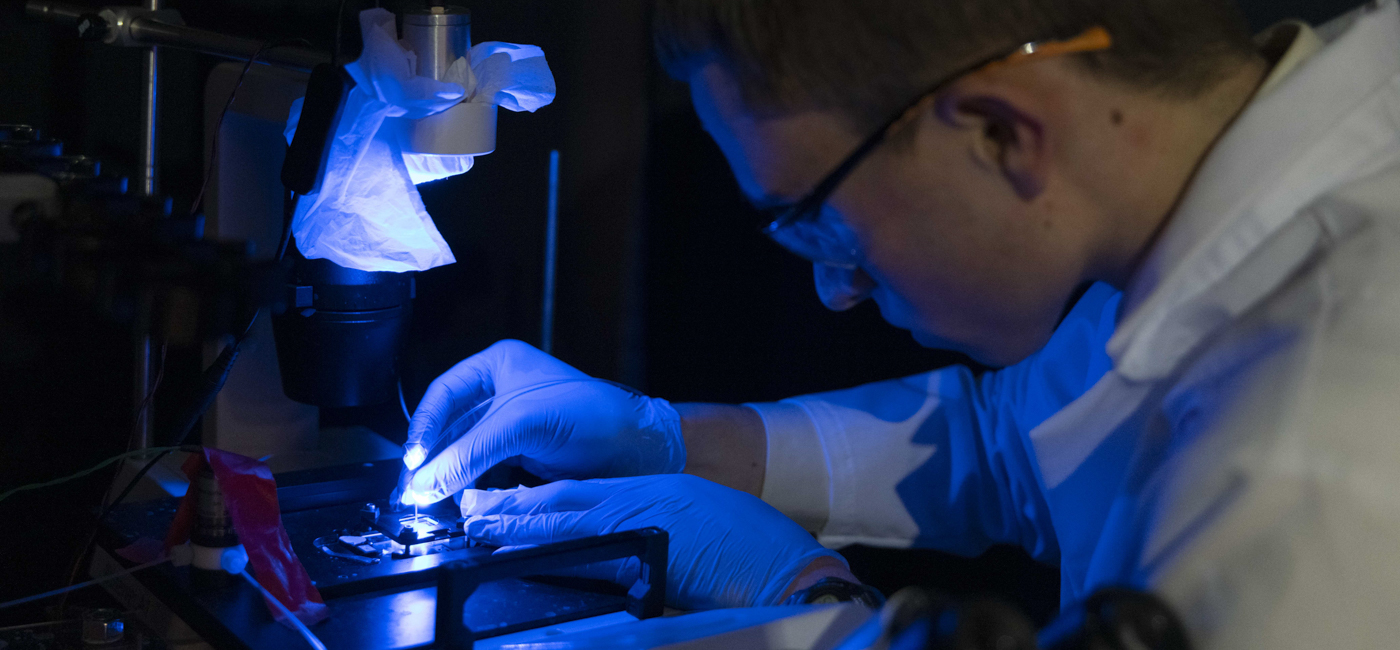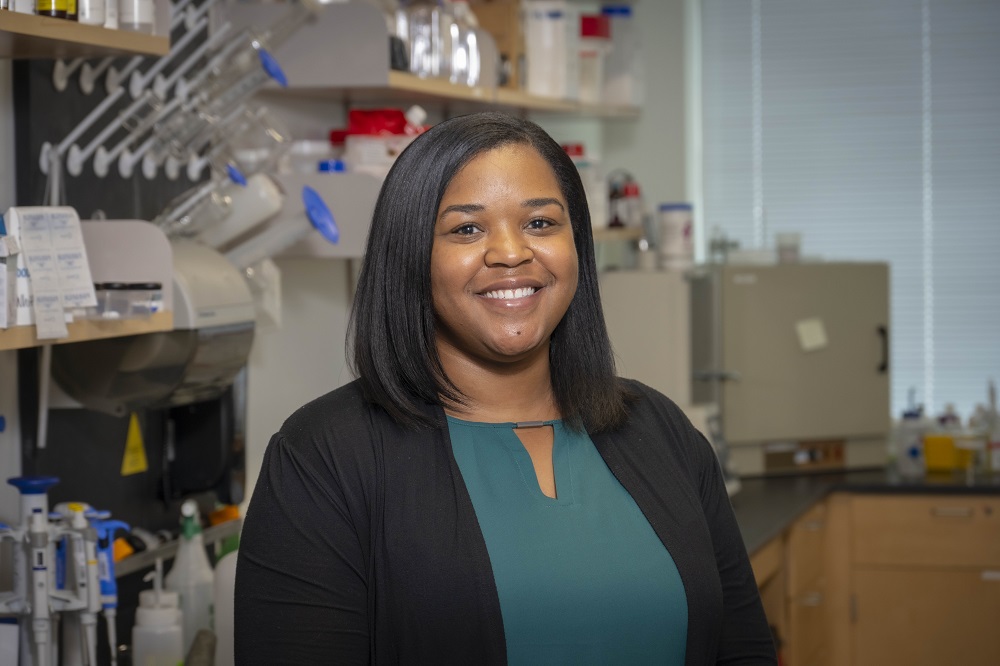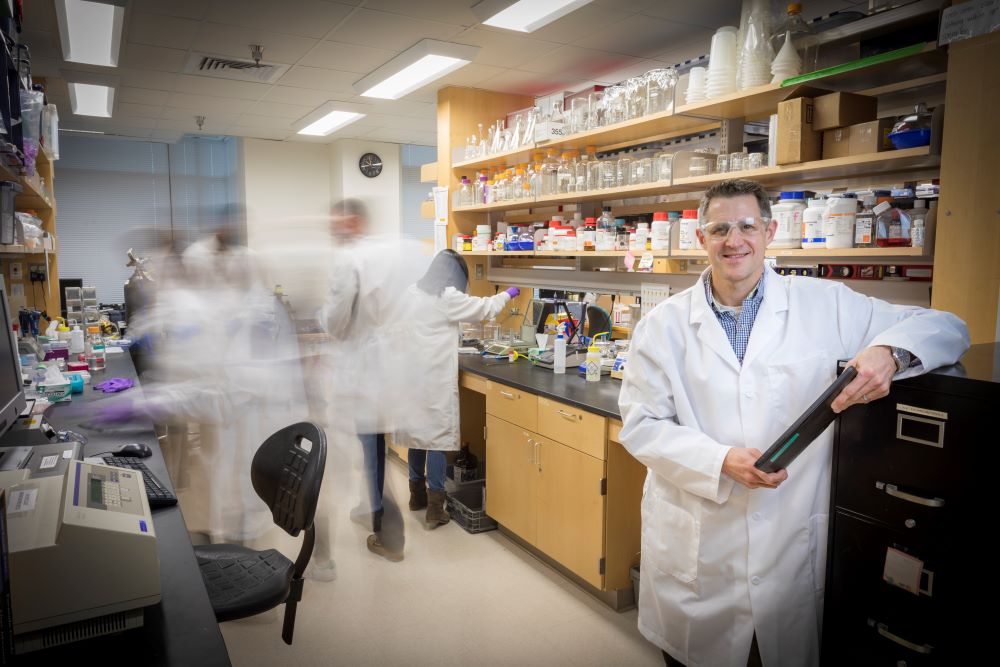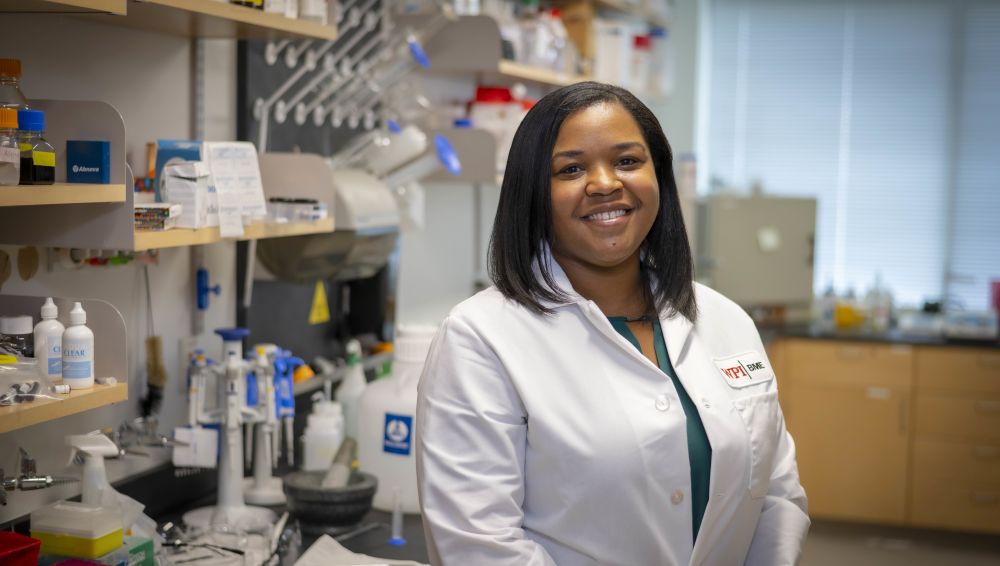Worcester Polytechnic Institute (WPI) researcher Catherine Whittington has been awarded three new grants worth nearly $400,000 to support her research into tissue engineering, cancer, and lymphatic disorders, including a Genentech Research Award that is aimed at addressing historic racial disparities in federal grant funding.
Whittington, assistant professor in the Department of Biomedical Engineering, will use the awards to expand understanding of the role that tissue stiffening plays in pancreatic cancer, cancer metastasis, and lymphedema. The funding will also support undergraduate and graduate student researchers in Whittington’s lab, beginning this summer.
“These awards help build out project areas where undergraduate and master’s students can participate in research into cancer or the lymphatic system,” Whittington says. “In addition, some of the funding will provide wages so students can continue their research in the lab over summer breaks, bringing greater continuity to their experiences and the lab’s progress. These grants help build a strong foundation for our lab.”
Whittington, who joined the WPI faculty in 2018, focuses her research on three-dimensional tissue-engineered models to illuminate mechanical impacts on disease. She places a particular emphasis on pancreatic cancer and lymphedema, a swelling that occurs when fluids build up in the body’s soft tissues due to insufficient or dysfunctional lymphatic vessels.
Both diseases are difficult to treat. About 90 percent of patients diagnosed with pancreatic ductal adenocarcinoma (PDAC), the most common form of pancreatic cancer, die within five years because diagnosis is typically delayed, the disease metastasizes rapidly, and tumor microenvironments suppress the body’s immune system. Lymphedema has few treatments, usually affects the arms or legs, and can be painful and disfiguring.
Three organizations awarded the new grants to Whittington:
- The National Cancer Institute (NCI) awarded $147,257 to Whittington for a two-year project that will define how the stiffening of tissue around pancreatic tumors impacts the activity of the lymphatic system and the cancer and immune cells that travel through lymph vessels. Whittington will use a three-dimensional collagen model with lymphatic, cancer, and immune cells that can be stiffened over time with light to determine how the cells interact with and migrate across lymphatic cells under changing stiffening conditions.
- The National Science Foundation (NSF) awarded $199,995 to Whittington for a two-year project that will determine how tissue stiffening around lymphatic vessels alters the expression of molecules involved in new lymph vessel growth and tissue stiffness. Whittington will culture collagen around needles on microfluidic chips, remove the needles to expose channels, and line the channels with lymphatic cells to create capillary-like structures that can be exposed to fluid flow and pressure in combination with collagen stiffening. For the broader impacts portion of the grant, she also will work with a team of undergraduates to design a seven-week laboratory course based on elements of the project.
- The University of Michigan at Ann Arbor, using funds supplied by pharmaceutical company Genentech, has awarded $50,000 to Whittington for wages for students working in her lab, supplies, and equipment user fees. This support is aimed at helping her address reviewer comments to a previously submitted, yet unfunded, NIH grant that will be resubmitted in the next year. The grant is part of a national initiative aimed at addressing historic discrepancies in the amount of federal grant money awarded to Black scientists.
The Genentech funding will allow Whittington to offer paid research opportunities to students who might be volunteering in her lab or working on a project during the academic year but need summer funding.
“The students’ work not only enriches their education, but it also generates data that helps us compete for additional research funding,” Whittington said. “This grant will be especially helpful in bridging funding gaps that can be a challenge to a young investigator.”







